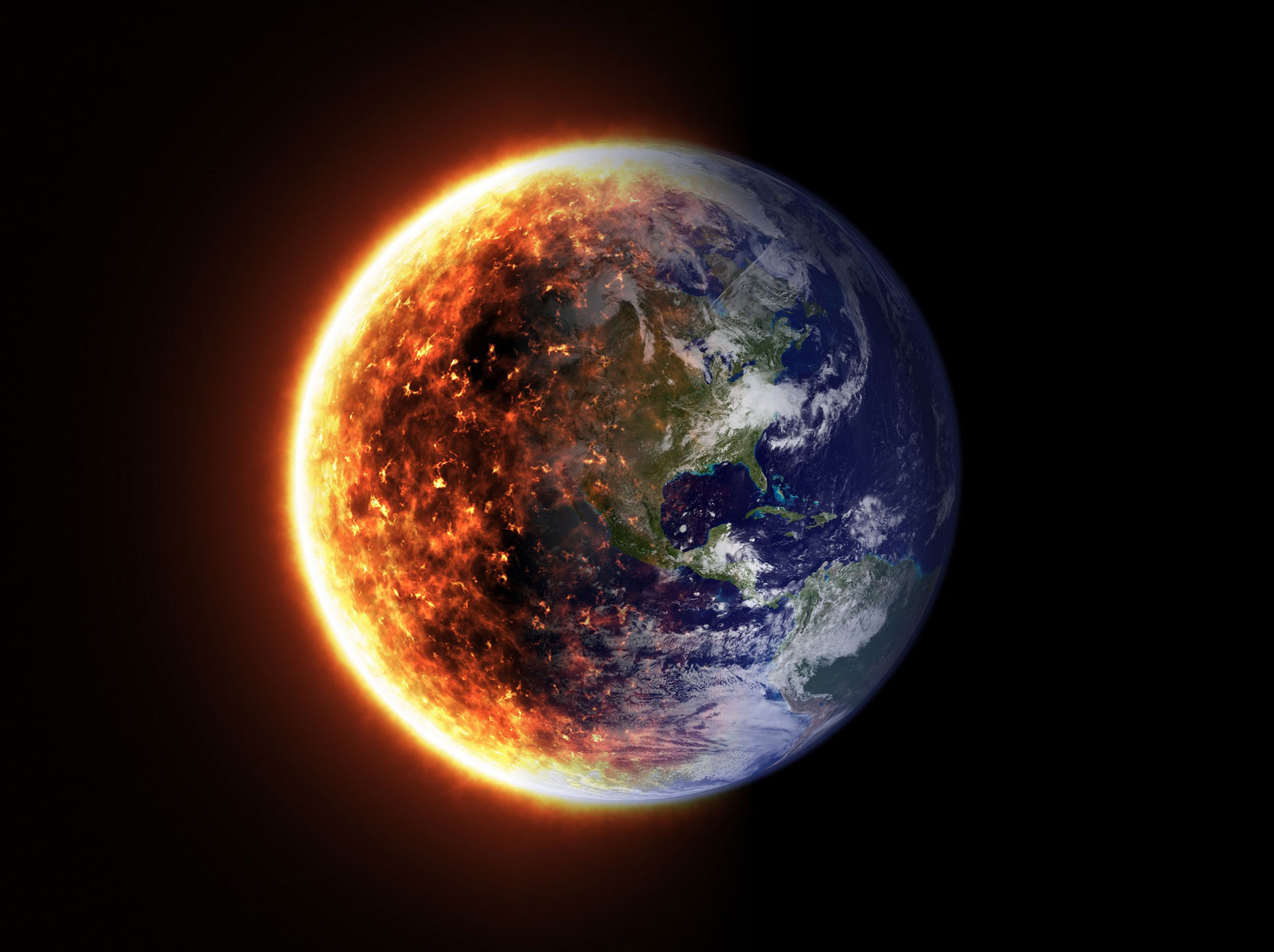Researchers at the University of Graz, Austria, have shown in an international study that the heat energy content in the global atmosphere has increased about four times faster since the beginning of the 21st century than it did within 1960 and 2000. In the northern hemisphere, outside the tropics, it has even increased around six times faster. The driving cause are the human-made greenhouse gas emissions. “Such a strong heat increase in such a short time cannot be explained purely by natural fluctuations,” says Gottfried Kirchengast, one of the lead authors of the study published in the journal Earth System Science Data. “If the heat content in the atmosphere grows at such a disproportionate rate compared to ocean and land, this drives weather and climate extremes even more strongly,” says the researcher from the Wegener Center and Institute of Physics at the University of Graz.
Energy imbalance
Due to the continuing fossil emissions, the concentration of greenhouse gases in the atmosphere is steadily increasing. This causes a global energy imbalance between the solar radiation reaching our planet and the back-radiation from the Earth, which is reduced by the greenhouse gas increase. “The imbalance leaves a huge amount of excess energy in the Earth system, around 13 trillion gigajoules every year, which is more than twenty times the world’s energy consumption. This inevitably drives global warming and only a reduction of emissions towards zero can stop this process,” Kirchengast explains.
Heat inventory
The large-scale international study by about seventy scientists from fourteen countries, conducted in the frame of the UN’s Global Climate Observing System (GCOS) programme, provides an up-to-date assessment of Earth’s heat inventory. It shows how much excess energy has been accumulating in the planet’s oceans, land masses and atmosphere since the 1960s, and how it has led to the melting of ice sheets and glaciers. The results show that about 89 percent of this energy is currently stored by the oceans, five percent by the land, four percent is utilized to melt ice, and about two percent goes into the atmosphere.
“While the atmosphere takes up the smallest absolute amount of heat – mainly thanks to the buffer storage by the oceans – in relative terms its changes are the strongest. And they have the most direct impact on us, such as through stronger weather and climate extremes,” Kirchengast summarizes. “The increase in atmospheric heat content is a fundamental indicator of anthropogenic climate change,” the researcher emphasizes.
The authors of the study recommend that the Earth heat inventory be further on updated on a regular basis, similar to the global emissions monitoring, and included in the Global Stocktake of the Paris Climate Agreement. The first of these stocktakes will be completed this year, assessing the progress towards the agreed goals achieved so far.
Excellent team
The atmosphere team of the study also included Maximilian Gorfer and Andrea Steiner from the University of Graz as well as Michael Mayer and Leopold Haimberger from the University of Vienna. Kirchengast’s research group is among the internationally leading ones in the field of atmosphere & climate observations and related climate change analyses. It also explores new grounds, in highly interdisciplinary partnerships, in the area of low carbon transition solutions (Carbon Management). The research is embedded in the Field of Excellence Climate Change Graz and is supported in particular through projects funded by the Austrian Research Promotion Agency FFG, the Austrian Science Fund FWF and the European Meteorological Satellites Organization EUMETSAT.
>> Wegener Center for Climate and Global Change
>> Climate Change Graz
Publication
von Schuckmann, K., A. Miniere, F. Gues, F. J. Cuesta-Valero, G. Kirchengast, S. Adusumilli, F. Straneo, et al. (2023):
Heat stored in the Earth system 1960-2020: where does the energy go?
Earth System Science Data, https://doi.org/10.5194/essd-15-1675-2023
>> Illustration “heat energy increase in the atmosphere” I with explanatory text I scientific illustration
